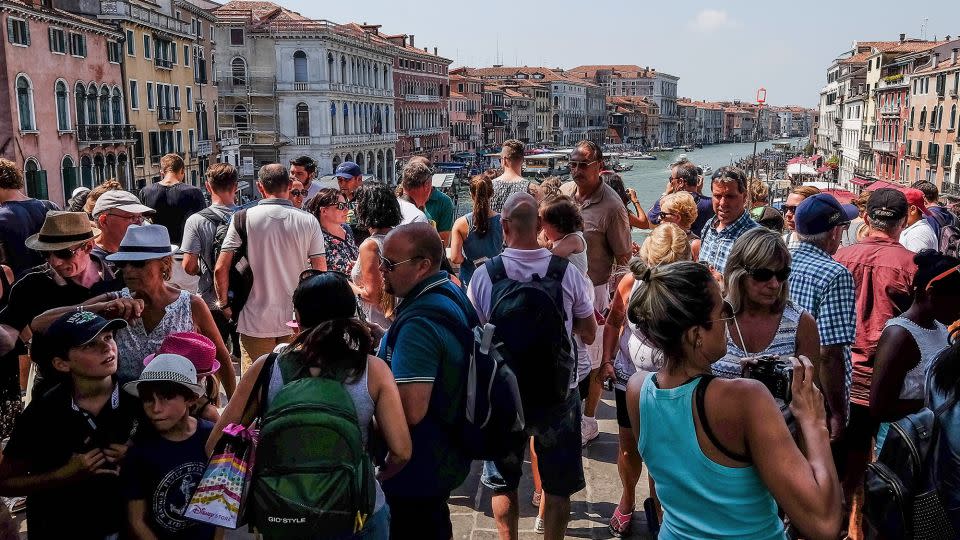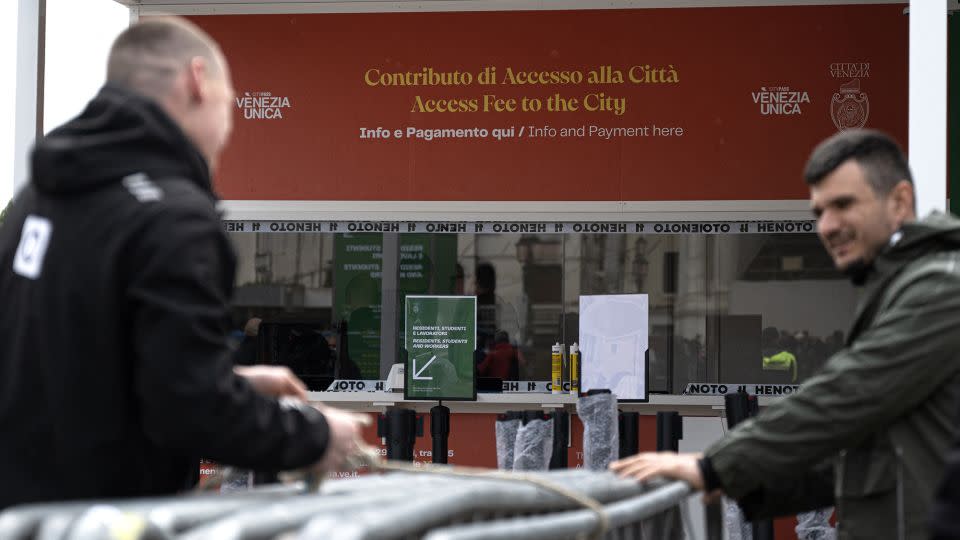April 25th has long been a historic day in Venice – the date is not only the day of the liberation of Italy, but also the memorial day of the city’s patron saint, Saint Mark.
But now Venice has another dose of history coming up on April 25th – because the day is the day on which the city becomes the first city in the world to charge day-trippers an entrance fee.
The long awaited Access fee (It is an “access fee” rather than a ticket) started at 8am this morning. The city council is running a pilot project until mid-July to see if the system can work.
Anyone visiting Venice as a tourist for a day – except those residing in the Veneto region – must pay the 5 euro ($5.40) fee if they arrive between 8 a.m. and 4 p.m.
Tourists staying overnight do not have to pay as the accommodation tax is already included in the accommodation bill. However, they must also register their presence in order to request an exemption from the fee. Essentially, anyone entering the city on the days the fee is charged must carry either a ticket or an exemption. The only exceptions are residents of Venice and people born there.
A tourism board representative told CNN that 82,000 people registered to enter the country on the first day – a national holiday in Italy – but on average only one in 10 paid the fee.
According to local newspaper Il Gazzettino, which broke down the numbers, only 7,266 people had paid the fee. Everyone else had registered exceptions: over 30,000 hotel guests, 15,000 commuters, 11,000 students and almost 10,000 Veneto residents.
Problems and protests

The registration system has highlighted residents’ housing problems – on the first day alone, 5,300 people registered to enter the city as second home owners. There are now fewer than 50,000 residents in Venice, and tens of thousands have been forced out of the city to make way for second homes and Airbnbs.
The rest is made up of school trips and residents’ guests.
In preparation for the first day, the council has in recent days set up checkpoints outside the rail and bus terminals, with separate queues for residents, exemptions and ratepayers. There is also a counter outside the station where arrivals can pay the fee or request an exemption.
The fee will be charged for 29 days until July 14th. Afterwards, the mayor of Venice, Luigi Brugnaro, said that they would review the progress of the pilot project before deciding whether to continue.


The fee is controversial among Venetians because they fear it could turn the city into an amusement park and because they don’t like the idea of having to register guests.
The tourism association spokesman added that another 80,000 people registered to enter the city on Friday, and even more on Saturday. On national holidays, over 100,000 day-trippers can usually flock to the beleaguered city – tripling the regular occupancy.
As some locals prepared to protest against the introduction of the fee, fully booked trains from Milan and Rome streamed into the city.
Paolo Brandolisio, who makes oars and forcole (Venice’s famous gondola rowing oars), told CNN he doesn’t think the fee will help the city besieged by overtourism.
“They’re not putting a cap on entry and today 80,000 people have booked – it’s going to be a nightmare,” he said.
“What happens when 150,000 people book and you have to let them in? They say that people’s freedom must be respected, but they must pay for it. It is ridiculous.”
He suggested creating incentives for visitors to stay longer, such as discounts for longer hotels – or simply limiting the number of visitors.
Barbie Latza Nadeau in Rome contributed to this story
For more CNN news and newsletters, create an account at CNN.com
